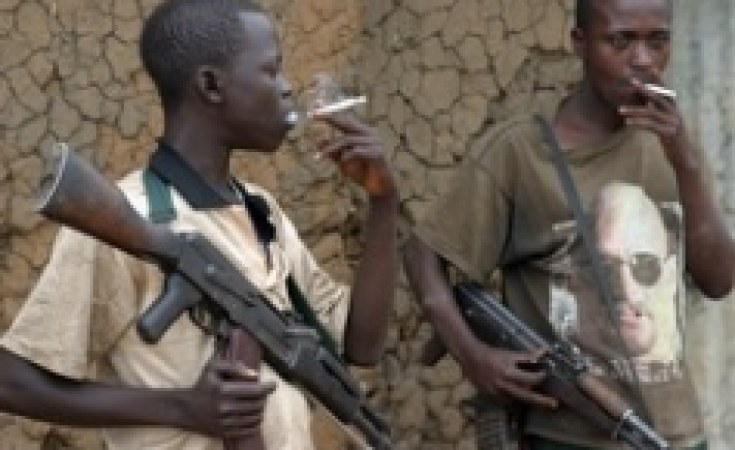Kinshasa, DRC — Stability hangs in the balance in the eastern Democratic Republic of the Congo (DRC), where military leaders from five regional countries have been meeting for days to devise a coordinated military strategy to end hostilities that risk escalating into a regional conflict.
EFFORTS TO END HOSTILITIES
For days, military leaders from the DRC, Tanzania, Malawi, South Africa, and Burundi have been meeting in Goma, the capital of North Kivu province in the DRC, to assess and strengthen joint operations against the violent hostilities, particularly around the strategic town of Sake.
This town is considered the last barrier to Goma, and it is here that the Congolese army, along with partners including the military elements of the Southern African Development Community (SADC), have positioned heavy artillery to halt the advance of the March 23 Movement (M23) rebels. The rebel group, which resurfaced in late 2021, has triggered conflicts and humanitarian crises and seized major strongholds on Congolese soil, including several locations in the mountains overlooking Sake.
This meeting is seen by DRC military authorities as a pivotal moment in regional efforts to stabilize the volatile region, which, according to the Special Representative of the UN Secretary-General in the DRC, Bintou Keita, "risks extending the conflict on a regional scale."
"The presence of these military figures underscores the regional commitment to peace and security. It also reflects the collaborative spirit of the SADC forces," an official from the Congolese army in Goma told Xinhua on Friday.
According to the Angolan government, whose President Joao Lourenco currently holds the rotating presidency of SADC, Tanzania, Malawi and South Africa have already deployed their military elements in eastern DRC as part of a joint SADC operation, which is mandated to conduct offensive operations against the rebels, particularly the M23.
The primary objective of this meeting was to address the urgent challenges posed by the M23 rebels and their supporters, an official present at the closed-door meeting told Xinhua, emphasizing the collective determination of the SADC and its partners to support the Congolese army in ending the rebellion's activities in the region.
After several hours of closed-door discussions on Friday, Congolese military sources stressed that the meeting highlighted the urgent need for a coordinated military strategy.
PEACE HANGING IN BALANCE
While the SADC is mobilizing for operations on the ground, the situation in the Sake area remains highly volatile due to the daily bombardment by M23 rebels from the mountains overlooking the town.
On Thursday, four people, including a Tanzanian soldier deployed as part of the SADC mission, were seriously injured in Sake by bombs fired by the rebels targeting the military base and surrounding villages. Local sources reported that two armored vehicles belonging to the Tanzanian contingent were targeted by bombs during a reconnaissance mission.
On Friday, around 10 bombs were fired again by the rebels, resulting in injuries and the death of at least three civilians, shortly before the arrival of the five military leaders in Mubambiro, at the eastern entrance to Sake, for a field inspection.
According to General Sylvain Ekenge, spokesperson for the Congolese military, these bomb attacks did not deter the determination of the Congolese army and the military leaders of the contributing countries, who remained in the region. "The terrorists attempted to deter them by dropping bombs, but they did not weaken the determination of the defense force leaders, who arrived in Mubambiro and refined strategies to end the activities of these M23 terrorists," Ekenge said.
In a press release published in mid-February, the United Nations High Commissioner for Refugees (UNHCR) expressed concern about the fate of around 135,000 internally displaced persons who fled Sake toward the provincial capital Goma due to bombs falling on civilian shelters, including the Zaina camp in Sake and the Lushagala camp in Goma, where nearly 65,000 displaced persons have found refuge.
According to the UNHCR, the indiscriminate bombings also increase pressure on already limited resources to accommodate 800,000 internally displaced persons in the region and 2.5 million others in North Kivu province.
The UN peacekeeping mission in the DRC, known as MONUSCO, said that it had strengthened its presence in Goma due to the escalation of hostilities. "This effort demonstrates the force's firm determination to protect the civilians of Goma and Sake," said MONUSCO military spokesperson Lieutenant Colonel Mensah Kadagni.
The M23 offensives have also triggered a diplomatic standoff between the DRC and Rwanda. The DRC has accused Rwanda of backing M23 rebels, an accusation rejected by both Kigali and the M23 rebel group. Rwandan authorities accused the Congolese army of supporting the remnants of the Democratic Forces for the Liberation of Rwanda (FDLR), responsible for the 1994 genocide.
The Angolan government recently revealed the possibility of a direct dialogue between the two presidents of the DRC and Rwanda, following a meeting at the end of February in Luanda between Congolese President Felix Tshisekedi and Lourenco, the designated mediator, on the peace and security situation in eastern DRC.
According to Angolan Minister of Foreign Affairs Tete Antonio, President of the DRC Felix Tshisekedi has expressed his willingness to meet with his Rwandan counterpart, Paul Kagame, to address the ongoing instability in the eastern DRC, following Tshisekedi's visit to Luanda in late February.


